A Short History and Previous Results

Previous Results at Chiswick Regatta
A Short History
Chiswick Regatta originated as Chiswick Clinker Eights on Saturday 17 May 1924. In the early 1920s there were many fewer regattas than at present. The season’s first regatta on the Thames was not until the middle of June. To provide more competition, several Tideway clubs decided to organise some early season regattas aimed mainly at lower status oarsmen. Chiswick Clinker Eights was established by a committee drawn from the four clubs on this stretch of the river – Anglian, Ibis, Mortlake and Quintin. Anglian was based at Maynard’s Boathouse, about 200 metres below Kew Railway Bridge; Ibis, which was the Prudential’s in-house club and which closed in the early 1990s, was in the boathouse now occupied by Mortlake Anglian & Alpha; and Mortlake had two huts at the top of the left-hand set of steps as you look across the river from Quintin. Quintin is the only one of the four clubs still in the same place.
The only event at the 1924 regatta was Maiden Eights – what would nowadays be called Novice Eights. Nine crews entered and the whole regatta required only four races. The course was from Anglian’s boathouse to The Ship pub. This was some years before Chiswick Bridge was built. The regatta made a profit of £5, which seems to have been regarded as satisfactory.
In 1925 the committee not only added another eights event to the regatta but also instituted a regatta for best boats. The best-boat regatta was held over two weekday evenings in July. Evening regattas were not uncommon at that time: even the Metropolitan Regatta was held over consecutive evenings until as late as the 1960s. Entries for Chiswick Clinker Eights initially increased year by year but then tailed off in the mid-1930s. In 1936 there were only seven entries spread over the two events. The clinker regatta was never held again.
The best-boat regatta, on the other hand, proved more popular. It started in 1925 with just one event for eights and one for single sculls. As time went by, events were added for fours and pairs and at other statuses. After a few years of being held on a Tuesday and Wednesday evening, the regatta moved to a Saturday, usually in late May. The best-boat regatta used the same course as the clinker regatta, and both regattas started from stake boats. In 1931 and 1932, while Chiswick Bridge was under construction, both regattas used a shortened course. Perhaps surprisingly, once the bridge was completed both regattas reverted to the original course even though it meant racing three-abreast through the centre arch. In the early years of the clinker regatta, before the bridge was built, some races had been four-abreast.
Chiswick Regatta continued to race through the bridge until the early 1970s, when the present shorter course was adopted. At the same time the stake boats were abandoned in favour of a free start. Another major change came in 1983, when women’s events were introduced. For most of the post-war period the regatta was held towards the end of May, latterly on the weekend of the Spring Bank Holiday. In 1990 it moved to its present date on the Saturday of the May Day Bank Holiday, the same weekend as Wallingford Regatta.
In the 1950s and 1960s the regatta sometimes received so many entries that the first few heats were raced on the Friday evening. But in the years when Friday racing was deemed necessary the number of races over the two days was typically 60-odd. We now manage over 90 in a single day.
In 2006 the regatta temporarily lost its most distinctive feature when the Port of London Authority banned three-boat racing at all Tideway regattas. Three-boat racing was reintroduced in 2008 but with restrictions on the types of event in which it can be used. Because of the coronavirus pandemic the 2020 regatta had to be cancelled and the 2021 regatta was moved from its usual date in early May to the first Saturday in July. In 2023 the regatta returned to its usual date.
Recent years have seen increased numbers of entries, especially from juniors. As a result we have often had to turn away some entries because we have received more than we can accommodate in a day..
